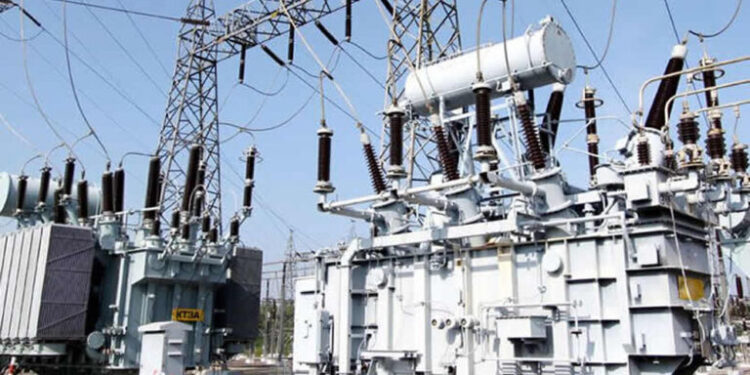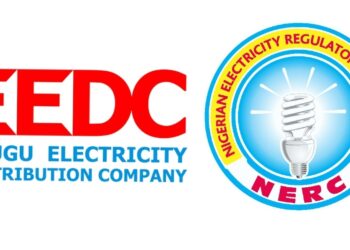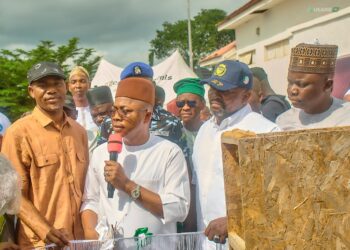The Federal Government has approved contracts worth ₦68.7 billion for two major power projects targeting universities, teaching hospitals, and rural businesses, as part of efforts to reform Nigeria’s energy sector.
The Minister of Power, Adebayo Adelabu, disclosed this on Thursday after the Federal Executive Council (FEC) meeting presided over by President Tinubu at the State House, Abuja.
Adelabu said the approvals reflect the government’s commitment to delivering reliable electricity to critical sectors.
“This administration is bent on ensuring the transformation in our power sector and improving supply of power to two key sectors for national existence,” he stated.
The first approval covers engineering, procurement, and construction services under the Energising Education Programme, funded through the Special Intervention Fund for Infrastructure Development and managed by the Rural Electrification Agency.
“The initiative is aimed at relieving our educational institutions and teaching hospitals of the burden of huge energy costs, while providing reliable and good-quality electricity,” he explained.
Adelabu described the power shortage in some universities and hospitals as having reached crisis levels.
“The absence of reliable power has created a crisis level in some universities and hospitals, with institutions unable to afford the electricity available in their localities.
“This has at times led to blackouts and even industrial actions,” he said.
He noted that similar renewable energy projects have already been completed for some universities through World Bank support.
“The new funding is to complement the World Bank financing in order to accelerate deployment across other institutions in the country,” he added.
Examples of completed installations include the University of Abuja, University of Niger (with a 12-megawatt solar plant), Usmanu Danfodiyo University, Sokoto (eight megawatts), Nigerian Defence Academy (2.6 megawatts), and the Federal University of Agriculture, Makurdi.
Adelabu said the new FEC approval will cover eight more institutions: University of Lagos; Ahmadu Bello University, Zaria; Obafemi Awolowo University, Ile-Ife; University of Nigeria, Nsukka; University of Ibadan and University College Hospital; University of Calabar; and Federal University, Wukari.
He said the project is expected to be completed within seven to nine months.
“This is another case of ensuring that universities enjoy uninterrupted electricity.
“Our universities will never be the same again,” Adelabu said.
The second approval targets “Agricultural Centres of Excellence” under the Rural Electrification Agency, providing solar infrastructure to rural communities.
Adelabu said : “This is not limited to just lighting up the households.
“It also includes ensuring productive use of equipment powered by solar sources.
“The intention is to light up our rural households and power our rural businesses — especially those involved in processing agricultural produce.”
He added that the project will deliver solar-powered processing equipment to support cluster-based agro-processing by micro and small enterprises in underserved areas.
The total contract value of ₦68.7 billion includes 7.5% VAT.
While the university projects will take up to nine months, the rural component has a three-month delivery timeline.
“This government is empowering rural communities to enjoy good livelihoods in their homes and also to put their effort into productivity to improve their prosperity,” Adelabu said.
Speaking further on power approvals, Adelabu said the first is valued at ₦145 billion, inclusive of 7.5 percent VAT, is for the engineering, procurement, and construction (EPC) of power systems under the Energizing Education Programme (EEP), implemented by the Rural Electrification Agency (REA).
He disclosed that this will be funded through the Renewed Hope Infrastructure Development Fund and is expected to be delivered within seven to nine months.
The EEP is targeted at easing the energy burden on Nigeria’s public universities and tertiary teaching hospitals by providing reliable, renewable power supply.
The Minister noted that many institutions have faced severe electricity challenges, leading to blackouts and industrial actions, as they struggle to meet exorbitant utility bills from distribution companies.
“The absence of reliable power in most institutions has grown into a crisis.
This initiative will bring relief to educational and medical institutions and improve the quality of education and healthcare delivery,” Adelabu added.
Source – Voice of Nigeria
(vitalnewsngr.com)





















